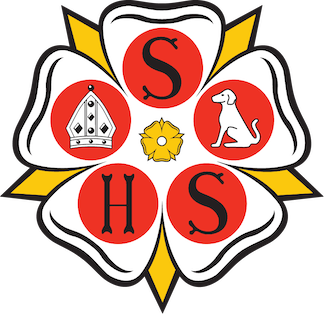History
Curriculum Intent
The knowledge and skills that pupils can gain from History help them to understand the world around them, the people around them and themselves better as they can both know about the world as it has been through time and have the skills to analyse and question the world as it is now. British society is a diverse mix of identities, cultures, races and religions and the history of the world is complex and fascinating, we cannot cover it all in two, five, or seven years; there will always be more to learn.
We want our students to recognise this and seek out more knowledge when they find something piques their interest. Political, social, economic and religious factors influence how events have unfolded, our students will see these themes at the appropriate level they are working at for their knowledge of the past and we will build their cultural capital through our study of these themes. Views of the past are subjective, even teachers are constructing a curriculum and choosing what to include, our students will begin to recognize the constructed nature of the past and think carefully about how to engage with this. We want our students to think critically about sources as evidence, interpretations of the past, the chronology of events, causes and consequences, changes and continuities and significant events.
Our students will be able to notice a developing sense of themes through time such as development of power, migration of peoples, conflict, local history and more. We as educators will engage with the wider subject community to ensure that we are reflecting on the best way to refine and deliver this vision.
Curriculum Implementation
Students learn history through a variety of enquiry driven sequences of lessons to develop their historical thinking and knowledge of the past. In Years 7 and 8 we begin with a thematic study of migration through time then work chronologically from 1066 to present day with regular references back to the overarching themes that develop through these eras.
Students practice their historical thinking through discussion in the classroom then through short and longer writing to explain their ideas as well as writing to analyse sources and interpretations. In Year 9 we revisit the thematic study in greater depth and with a focus on Medicine Through Time in a transition year to GCSE, developing core thematic threads and embedding historical thinking and writing skills established at Key Stage 3. We also study The British Sector of the Western Front in a site study of a significant time and place in world and European history. In Year 10 and 11 we study Edexcel GCSE covering The American West, Weimar and Nazi Germany, Anglo Saxon and Norman England covering a breadth and depth of history that gets students ready for both continuing to A Level and using their analysis and writing skills in other areas of their post-16 pathways.
In Year 12 and 13, students can study A-Level History. This course begins in Year 12 with Communists states in the twentieth century looking at the theme of communism in two very different countries, Russia and China. In Year 13 they develop an independent research question to understand the nature and purpose of the work of an historian; an opportunity to work with a range of interpretations and analyse these in depth in an extended piece of coursework writing.
In addition to this they study the Lancastrians, Yorkists and Henry VII; a period of Medieval history with strong local links and a fascinating breadth and depth study of the political struggles of 15th Century England. Across all of our cohorts, we seek opportunities to engage in learning beyond the classroom, including clubs, extension opportunities, recommended reading and planned international trips for 2024 onwards.

 Follow us on Twitter
Follow us on Twitter